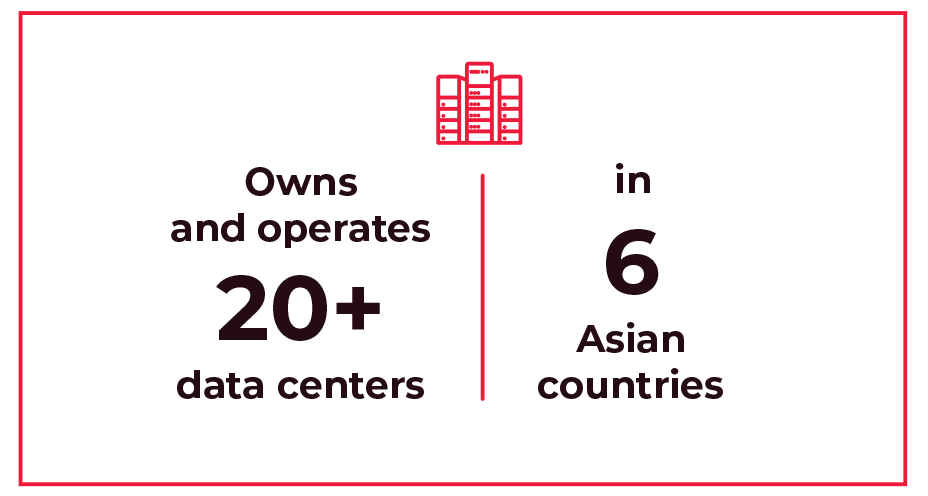Princeton Digital Group
Offering global hyperscalers deep local expertise in Asia

Princeton Digital Group has grown into a major pan-Asian data center operator with deep local expertise to help global hyperscalers expand in the region. The company is now building AI-ready data center campuses in key Asian markets to meet an expected surge in demand.
Asset Class
Sector
Year invested
Building a pan-Asian data center platform

In 2017, global telecom veteran Rangu Salgame identified a gap in the data center market: the need for a pan-Asian platform that could seamlessly serve hyperscalers with international standards and have the local expertise to deliver and help its clients expand in the region. That led Salgame and a partner to co-found Princeton Digital Group.
The company grew rapidly, building a portfolio of 1 gigawatt in less than seven years, both by acquiring existing data centers and building its own. Ontario Teachers’ invested in PDG in late 2020, attracted by its diversified portfolio and strong position in a growing Asian sector. The company now owns 21 data centers in six Asian countries: China, India, Japan, Indonesia, Malaysia and its home base of Singapore.
A new focus on AI-ready data center campuses
PDG serves some of the world’s biggest cloud companies, and Salgame says execution is critical to the tech giants that are its clients. The company has put a strong focus on hiring, training and retaining the professionals needed to build and run data centers: people with expertise in land acquisition, securing power and more.
Salgame says AI is altering the data center landscape, not least because of the scale and amount of power it will require. Anticipating the change, PDG has for the past two years focused on building AI-ready data center campuses to accommodate the expected surge in demand. Three notable projects are in Mumbai, Tokyo and Johor, Malaysia, which is right across a narrow strait from Singapore. Together, the three campuses will have capacity of more than 400 megawatts.
Sourcing enough power for current and future demand—in a sustainable manner—is a challenge for the whole data center sector. Salgame says PDG has set a target of getting all its power from renewable sources by 2030. To get there, it has procured renewable power sourced from biomass in Indonesia and is buying solar power for its data centers in India. It also prioritizes sustainable design and construction for new projects, which includes locating data centers near renewable energy supply, incorporating sustainable building materials, adopting new cooling technologies, and implementing water conservation practices.
Integrating green design principles in Tokyo
The US$1 billion, 96-megawatt Saitama data center campus near Tokyo is PDG’s flagship campus in Japan. The project underscores PDG’s view that Japan is a high-priority market for global hyperscalers, and it comes as the country is at the cusp of large-scale digital transformation. The new campus also reflects PDG’s focus on the sustainability of its operations. The project includes features like a air-cooled chiller system and storm water reuse.
If I lose sleep, it’s on talent. The execution of these projects is critical to our business success. Our customers are signing long-term contacts with us and relying on us to support mission-critical applications. For those customers, delivery delays and service downtimes aren’t options.



